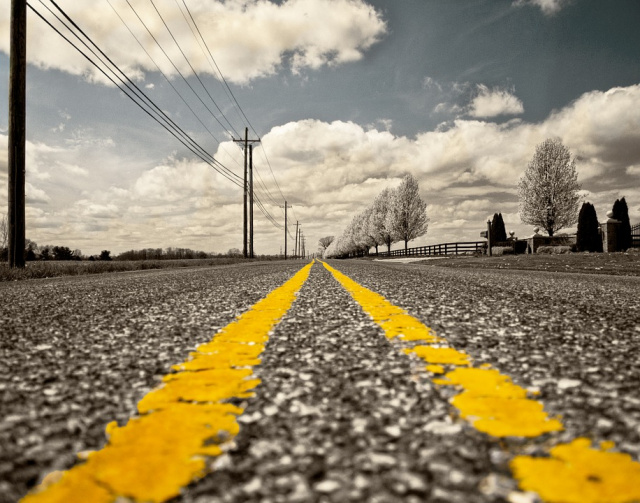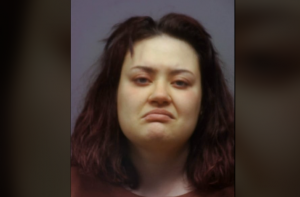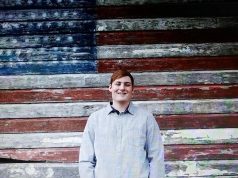If you haven’t read part one of the Recovering Warriors series, “The Road To Addiction”, you can find it here.
I want to say if you are now reading this second part, how much I appreciate you giving time to hear out what these individuals have to say, and also for being willing to learn about their struggle.
The first part of the interview largely gathered facts; this is where the responses begin to take a more personal, and more emotional turn. By this point I found myself pausing longer to really take in the depth of the answers to these questions, which relate to the struggle of drug-addicted life.
What does it physically feel like to be addicted?
- Erica T: Horrible! I wouldn’t wish it on anyone. The sickness of withdraw is enough to make you do ANYTHING to get your next high.
- Kendell K: So physically draining to the point where you can’t even move, but yet you can’t relax due to the restless leg syndrome and the rest of the aches and pains throughout the body. I was on edge so far that I’d get so ticked off to the point of crying.
- Stefani M: By the end I was a functioning alcoholic. In the middle, I was always tired. I picked at my skin and now have scars. I didn’t eat much, skinny, anemic.
- Stacia T: Horrible. Worst feeling ever. Like you don’t matter. But it continues because the sickness of withdrawal is the worst experience ever.
- Anonymous 1: Tired all the time body hurts all the time. It feels like you have a bad cold constantly (unless you just got high that is) and if you didn’t have something that day it makes you feel like you are going to vomit, cramps everywhere.
- Anonymous 2: At first, energy. Later I needed the pills just to feel normal.
What does it feel like emotionally to be addicted?
- Erica T: Draining. I felt like a worthless piece of crap. Felt like nothing. Sometimes I believed that the people I loved would be better off without me. I was disgusted with myself.
- Kendell K: Loss of emotion really for anyone other than yourself and what you need. All I could think about was getting my next fix. The only time I felt anything for anyone else was when my daughter asked when I was coming home.
- Stefani M: Hopeless, helplessness. Self-worth is 0%.
- Stacia T: I didn’t feel emotion. I didn’t care about anything but how I was gonna get high next. I was emotionless.
- Anonymous 1: Draining. You always feel like you have a huge weight on your shoulders. It also started to make me feel like I was a horrible person, someone that didn’t deserve any kind of happiness which caused depression.
- Anonymous 2: I felt nothing emotionally
Would you say you were hopeless?
- Erica T: Definitely. I had no hope. Not an ounce of it.
- Kendell K: Hopeless, dammed, and worthless.
- Stefani M: Completely.
- Stacia T: Absolutely. I had lost everything and everyone close to me. Except my “boyfriend” at the time. Who really never cared about me, only how much dope I could get.
- Anonymous 1: Extremely
- Anonymous 2: I believe there was always hope
What made you want to recover the most?
- Erica T: I was sitting in jail for another stay, had prison time over my head and at first, I decided I wanted to go to prison, do my time and be done. But then I thought to myself. I had a 2-year-old daughter. The best family anyone could ask for. Something switched. I remember this feeling washing over me in my cell and I called my mom when I had the chance. Told her I wanted to change. Wanted to go to rehab. I knew if I went to prison, it wouldn’t help. It would only make me more bitter. Angrier and that when I got out, it would only be worse.
- Kendell K: Well after being homeless, losing everything I’ve had, and custody of my daughter to my parents. On top of being sick of waking up sick every morning and having to find ways to get something just to live out the day. My daughter asking when I was coming home again was the main thing that struck home to my conscience.
- Stefani M: Well cocaine, I was having chest pains and thought I was going to die. So, I dropped it and haven’t touched it in almost 10 years, still scared of it. Alcohol is a little different for me. I didn’t find my way in a traditional manner. I was sober almost 2 months before I realized and accepted I had a problem that if I did not address would become a problem again. Now I am scared of it. I know what it will do to me with even one sip. I have too much going for me to even try.
- Stacia T: My life. I was young. 22 at my rock bottom. I knew I wanted a life and a family. I knew I deserved better.
- Anonymous 1: It was killing me and my family.
- Anonymous 2: I sold everything I had and my wife left me for it
Now, I will share my opinion in this “opinion piece.”
Of course, what I want for everyone to do is consider the heartfelt responses in this interview and draw your own conclusions; however, I humbly offer the following take.
One of the greatest debates about drug addiction is whether or not it is a disease. I did not know where exactly I stood on that sentiment prior to working on this article. The problem, I feel, is that the division lies between “It’s a choice” and “It’s a disease”. The two are absolutely not mutually exclusive. In fact, in almost all scenarios of disease, personal decision is just as present, or absent, as in the case of addiction.
- Advertisement -
Consider the instances of diabetes, heart disease, and cancer. For all three of these major health issues, cause can be just as related to personal choices as it can be unrelated. One can be born with diabetes or genetic heart deficiencies, and cancer can form entirely on its own. However, poor diet can lead to diabetes, lack of physical activity and uncontrolled stress can greatly increase risk for heart disease, and smoking can cause cancer. But at no point, no matter the origin does anyone question if these three ailments are a disease. In the case of addiction, we have both intentional choice as well as not, represented.
If a drug addicted body has come to the state of a violent reaction in absence of the depended upon substance, that surely transcends mere matters of willpower or motivation to change. Regardless of initial introduction, the body now being in need of the drug for continued function leads me to believe that the drug-addicted state, is indeed, a disease.










